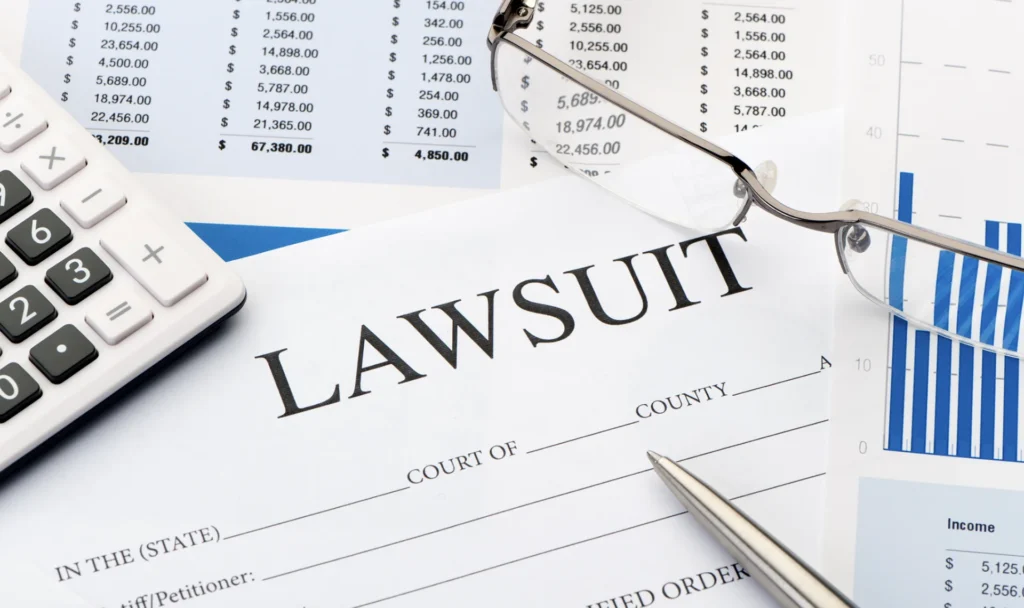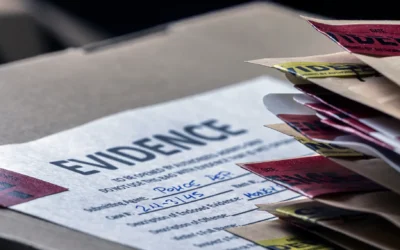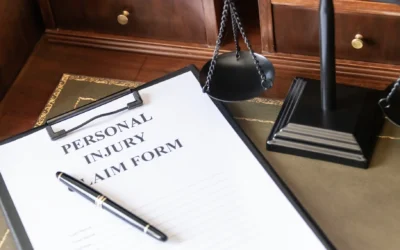Introduction
After an accident, you may feel overwhelmed by questions about what comes next. How do you recover your losses? Should you accept an insurance settlement, or is pursuing a lawsuit the better path? These decisions can significantly impact your financial recovery, emotional well-being, and the time it takes to move forward.
If you’re here, you or someone you care about might be facing these exact challenges. Navigating the legal process can feel daunting, especially when dealing with the aftermath of an injury. But you don’t have to face it alone. Hurt Aid is here to help.
This guide will break down the critical decision between settling and pursuing a lawsuit. Whether you’re exploring options for yourself or assisting a loved one, this article will provide the clarity you need to make an informed choice. Let’s explore how each path works, the factors to consider, and how you can approach this decision with confidence.
Understanding the Basics
When deciding between a settlement or a lawsuit, it’s essential to understand what each option entails and the circumstances under which they’re typically pursued.

What is a Settlement?
A settlement is an agreement between the injured party (you) and the other party involved, often an insurance company, to resolve the case without going to court. Settlements usually involve a payment in exchange for waiving further legal action.
When does a settlement happen?
- After an accident, the responsible party or their insurance company may offer compensation for your injuries and damages.
- Negotiations may occur between your attorney and the other party to reach an agreeable amount.
Benefits of settling:
- Faster resolution: Settlements can be resolved in weeks or months, avoiding the lengthy process of a trial.
- Less stress: Court proceedings can be emotionally taxing, whereas settlements are often straightforward.
- Lower costs: By avoiding court, legal fees and expenses are typically reduced.
For example, if you’ve been in a car accident and the at-fault driver’s insurance company offers a fair amount to cover your medical bills and lost wages, a settlement might be the most practical option.

What is a Lawsuit?
A lawsuit involves filing a formal legal claim against the party responsible for your injuries. This option is often pursued when a fair settlement cannot be reached or if the other party denies liability.
When might a lawsuit be necessary?
- The settlement offer is insufficient to cover your expenses and losses.
- Liability is disputed, and evidence is needed to prove your case in court.
Benefits of a lawsuit:
- Potential for higher compensation: If successful, a lawsuit may result in greater financial recovery, including punitive damages in some cases.
- Accountability: Going to court can hold the at-fault party accountable for their actions.
- Public record: A lawsuit creates a formal record, which may help prevent future negligence.
For example, if you’re dealing with medical malpractice and the hospital denies responsibility, filing a lawsuit may be the only way to secure the compensation you deserve.
Understanding these options is the first step in making the best decision for your situation. However, choosing between them often depends on several personal and legal factors, which we’ll discuss next.
Key Factors to Consider
Choosing between a settlement and a lawsuit is not always straightforward. Your decision depends on various factors, including the nature of your case, the strength of your evidence, and your personal priorities. Let’s explore these key considerations.
1. The Nature of Your Case
Some cases are more suited for settlement, while others may require a lawsuit to achieve justice.
- Severity of Injuries: Minor injuries with clear medical costs are often easier to resolve through a settlement. On the other hand, life-altering injuries or those requiring long-term medical care may warrant a lawsuit to secure sufficient compensation.
- Complexity of the Case: Cases involving multiple parties, such as multi-car accidents or workplace injuries with overlapping responsibilities, can be more complex and may require the court’s intervention to assign liability and damages.
2. Strength of Evidence
Evidence plays a critical role in determining the direction of your case.
- Strong Evidence: If you have clear medical records, police reports, or witness testimony, the other party may be motivated to settle quickly to avoid a potentially unfavorable court outcome.
- Weak or Disputed Evidence: In cases where liability is unclear or evidence is insufficient, a lawsuit might be necessary to present your case formally and allow a judge or jury to decide.
3. Potential Compensation
The financial aspects of your case can influence whether to settle or pursue a lawsuit.
- Settlement Offers: Settlements provide certainty, but they may not fully cover all your expenses, such as ongoing medical care or future lost wages.
- Lawsuit Awards: While lawsuits can result in higher compensation, they come with risks. There’s no guarantee of winning, and legal fees can reduce the final amount you receive.
4. Emotional and Time Costs
Pursuing a lawsuit can take a toll on your mental and emotional well-being.
- Settlements: These are typically quicker and less stressful, allowing you to move on faster.
- Lawsuits: Trials can take months or even years to conclude, requiring patience and resilience as you navigate depositions, hearings, and potentially an appeal process.
5. Legal Deadlines and State Laws
Every state has a statute of limitations for filing personal injury claims, which means you have a limited amount of time to take legal action.
- Settlements: These can be negotiated and finalized within the statute of limitations.
- Lawsuits: If a fair settlement cannot be reached within the legal timeframe, filing a lawsuit may be necessary to preserve your rights.
When evaluating these factors, it’s essential to remember that no two cases are alike. An experienced attorney can help you weigh these considerations and determine the best course of action. Up next, we’ll dive into the pros and cons of each option to give you a clearer picture of what to expect.
Pros and Cons of Each Option
Both settlements and lawsuits come with their own sets of advantages and drawbacks. Understanding these will help you decide which path aligns best with your goals and circumstances.
Settlements
Pros of Settling
- Faster Resolution
- Settlements can often be finalized within weeks or months, allowing you to recover your compensation and move forward sooner.
- Lower Costs
- By avoiding a trial, you save on court fees, expert witness expenses, and additional legal fees.
- Less Stress
- Settlements are typically less emotionally draining than lawsuits, which can involve lengthy trials and multiple hearings.
- Certainty
- A settlement ensures a guaranteed payout, even if it may be less than what you could potentially win at trial.
Cons of Settling
- Potentially Lower Compensation
- Insurance companies often offer less in settlements than you might receive in a favorable lawsuit verdict.
- No Admission of Liability
- Settling usually means the other party doesn’t admit fault, which may leave you feeling a lack of accountability.
- Limited Recourse
- Once a settlement is agreed upon, you cannot pursue additional compensation, even if future expenses arise.
Lawsuits
Pros of Filing a Lawsuit
- Higher Potential Compensation
- Lawsuits allow for greater recovery, including non-economic damages like pain and suffering or punitive damages in cases of gross negligence.
- Accountability
- A successful lawsuit can hold the at-fault party publicly accountable for their actions, which can provide a sense of justice.
- Thorough Examination of the Case
- A lawsuit involves gathering comprehensive evidence and presenting your case, which may be beneficial for disputes over liability or compensation.
Cons of Filing a Lawsuit
- Time-Consuming
- Lawsuits often take months or even years to conclude, which can delay your ability to move on with your life.
- Emotional Toll
- Trials can be stressful and require you to relive painful details of the accident through testimony and depositions.
- Risk of Losing
- There’s no guarantee of winning a lawsuit, and if the verdict is not in your favor, you may walk away with nothing.
- Higher Costs
- Legal fees and court costs can add up, reducing the net amount you receive even if you win.
Both options have their merits and challenges, and the right choice often depends on your unique situation. Next, we’ll discuss how to approach this decision and the steps you can take to make the best choice for your recovery.
How to Decide
Deciding between settling and pursuing a lawsuit can feel overwhelming, but breaking the process into clear steps can help. Consider your priorities, consult with experts, and weigh the trade-offs carefully.
Step 1: Evaluate Your Needs and Priorities
Think about what matters most to you and your loved ones in this process.
- Are you seeking a quick resolution?
If you need financial relief quickly for medical bills or lost wages, a settlement might be the better choice. - Do you want maximum compensation?
If you believe your damages far exceed the settlement offer, a lawsuit might help you pursue a larger award. - Are you emotionally prepared for a lawsuit?
Lawsuits require time, patience, and the willingness to navigate a potentially stressful process.
Step 2: Consult with an Experienced Attorney
A qualified personal injury attorney can help you understand the strengths and weaknesses of your case. They’ll assess:
- The evidence supporting your claim.
- The likelihood of securing a fair settlement.
- The potential risks and rewards of going to court.
An attorney’s insight can be invaluable in helping you make an informed decision.
Step 3: Review the Settlement Offer
Before accepting any settlement, ask yourself these questions:
- Does the offer cover all your current and future medical expenses?
- Have you accounted for lost wages and any future income you might lose?
- Does it provide fair compensation for pain and suffering?
If the answer to these questions is “no,” negotiating for a higher amount or considering a lawsuit might be worth exploring.
Step 4: Consider Deadlines and Legal Requirements
Personal injury claims are subject to strict deadlines, known as statutes of limitation. If you’re approaching the deadline and negotiations are stalling, filing a lawsuit might be necessary to preserve your rights.
Step 5: Prepare for the Possibility of Court
If you decide to pursue a lawsuit, prepare yourself for the realities of the process. This includes:
- Depositions and gathering additional evidence.
- Potentially facing the defendant in court.
- Understanding the timeline, which can vary depending on the complexity of the case.
Ultimately, the best decision is the one that aligns with your needs and circumstances. If you’re unsure of the right path, remember that you don’t have to navigate this alone. In the next section, we’ll answer some common questions to help you gain further clarity.
Common Questions
Navigating the choice between a settlement or a lawsuit can bring up a lot of questions. Here are answers to some of the most frequently asked concerns to help you feel more informed.
1. What if I regret accepting a settlement?
Once a settlement is finalized, it’s legally binding. This means you cannot reopen the case or seek additional compensation, even if new expenses arise. Before agreeing to a settlement, ensure it covers all your current and future medical costs, lost wages, and other damages.
2. Can I start with a settlement and later file a lawsuit?
It’s possible to negotiate a settlement while preparing for a lawsuit, but once you accept a settlement, you waive your right to pursue legal action for that incident. If settlement negotiations break down, filing a lawsuit may be necessary.
3. What happens if I lose my lawsuit?
If you lose your lawsuit, you won’t receive any compensation, and you may still be responsible for some legal fees or court costs. However, many personal injury attorneys work on a contingency fee basis, meaning they only get paid if you win.
4. How long does it take to settle versus file a lawsuit?
- Settlements: These can often be resolved within a few weeks or months, depending on the complexity of the case and the willingness of the other party to negotiate.
- Lawsuits: Trials can take months or even years to conclude, especially if appeals are involved.
5. Will my case go to court if I file a lawsuit?
Not necessarily. Most lawsuits settle before reaching the courtroom. Filing a lawsuit can sometimes motivate the other party to offer a better settlement to avoid the risks and costs of a trial.
6. How much compensation can I expect?
The amount depends on factors like the severity of your injuries, the evidence available, and the type of damages you’re seeking. An experienced attorney can provide an estimate based on similar cases, but outcomes can vary widely.
7. What if the insurance company denies my claim?
If your claim is denied, consulting an attorney is crucial. They can help you gather evidence, challenge the denial, and decide whether to negotiate further or file a lawsuit.
These questions represent just a few of the concerns people face when deciding between a settlement and a lawsuit. Each situation is unique, and speaking with a legal professional can help you address any uncertainties you have about your case.
Next, we’ll wrap up by discussing how Hurt Aid can provide the resources and connections you need to take the next step with confidence.
Conclusion: Finding the Path Forward
Deciding between a settlement or a lawsuit after an accident is a deeply personal choice that depends on your unique circumstances. Both options come with their own advantages and challenges, and the right decision often involves weighing factors such as financial needs, emotional readiness, and the strength of your case.
If you’re leaning toward a settlement, it offers a faster resolution and less stress but may result in lower compensation. On the other hand, a lawsuit can potentially secure higher compensation and hold the responsible party accountable, but it requires time, patience, and a willingness to navigate a complex legal process.
No matter where you are in this journey, you don’t have to face it alone. Hurt Aid is here to help. Whether you’re seeking clarity, resources, or a trusted connection to experienced legal professionals, our platform is designed to guide you every step of the way.Take the next step with confidence. Visit HurtAid.com today to explore your options and connect with the support you need to move forward.





